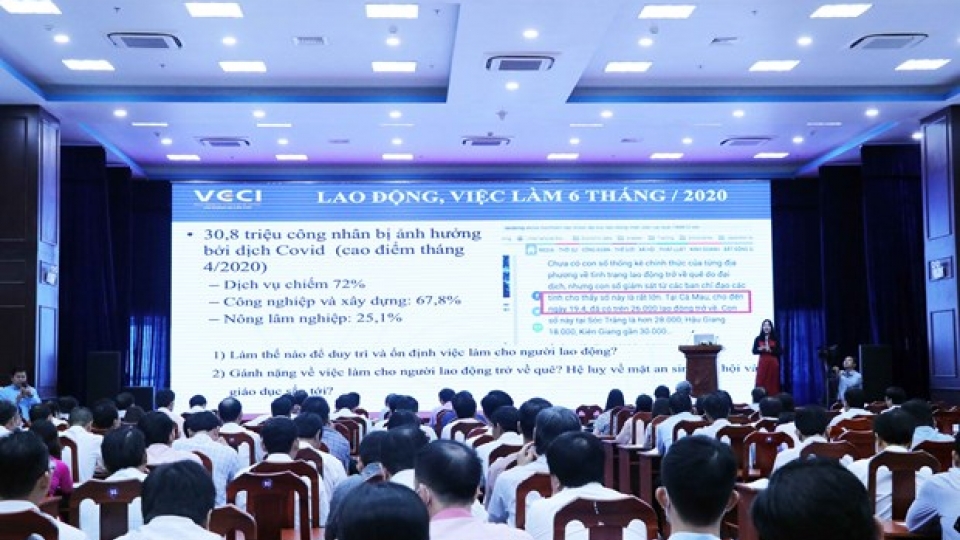Germany moves to ratify EVIPA with Vietnam
VOV.VN - The German Government has formally submitted the EU-Vietnam Investment Protection Agreement (EVIPA) to the German parliament (Bundestag) for ratification, marking a key milestone in efforts to promote trade and investment ties between Vietnam and the European Union (EU).
The agreement, which has long been championed by the Vietnamese Government, German businesses, and other EU stakeholders, was officially presented to the German Parliament on July 23.
At its 11th session, the German Cabinet approved a draft law to ratify the EU’s investment protection agreements with both Vietnam and Singapore. These legal instruments aim to reinforce economic partnerships with Southeast Asia and complement the EU’s free trade deals already in effect with Singapore (since 2019) and Vietnam (since 2020).
Earlier this month, Vice President of Vietnam Vo Thi Anh Xuan held talks in Berlin on July 2 with Vice President of the Bundestag Bodo Ramelow during her trip to attend the Global Summit of Women. Ramelow confirmed that the Bundestag had initiated consultations with relevant parties in preparation for ratification, seen as a new push for stronger Vietnam–Germany trade and investment cooperation.
Economic relations remain a key pillar of the Vietnam–Germany strategic partnership. Germany is Vietnam’s largest trading partner in Europe, while Vietnam is Germany’s top trading partner in Southeast Asia, with annual two-way trade growing steadily at over 10%. The EU–Vietnam Free Trade Agreement (EVFTA), to which Germany was a strong early backer, has helped propel Vietnamese exports to the German market.
The two economies are complementary in structure. Vietnam has strengths in light industry, services, consumer goods, agri-foods, digital transformation, and information technology, while Germany leads in heavy industry, machinery, raw materials, and clean energy technology.
Vietnam’s rising geopolitical profile in Asia and the Indo-Pacific, along with its dynamic economy, young workforce, and strategic location, has made it increasingly attractive to German investors.
By the end of 2023, Germany ranked 17th among 146 foreign investors in Vietnam, with 463 projects and US$2.68 billion in registered capital, mainly in major economic centers such as Ho Chi Minh City, southern Dong Nai province, and Hanoi. In 2024, German investment continued to grow, with 472 valid projects valued at US$2.76 billion in registered capital.
Amid efforts to diversify and de-risk their regional investments, German firms are increasingly prioritizing Vietnam for its lower costs and orientations for sustainable development.
Key areas of bilateral cooperation include renewable energy, green transition, sustainable development, manufacturing, logistics, education, and high-value services.
Renewable energy, green and sustainable development, manufacturing, services, logistics, and education are shared cooperation priorities for both sides.





